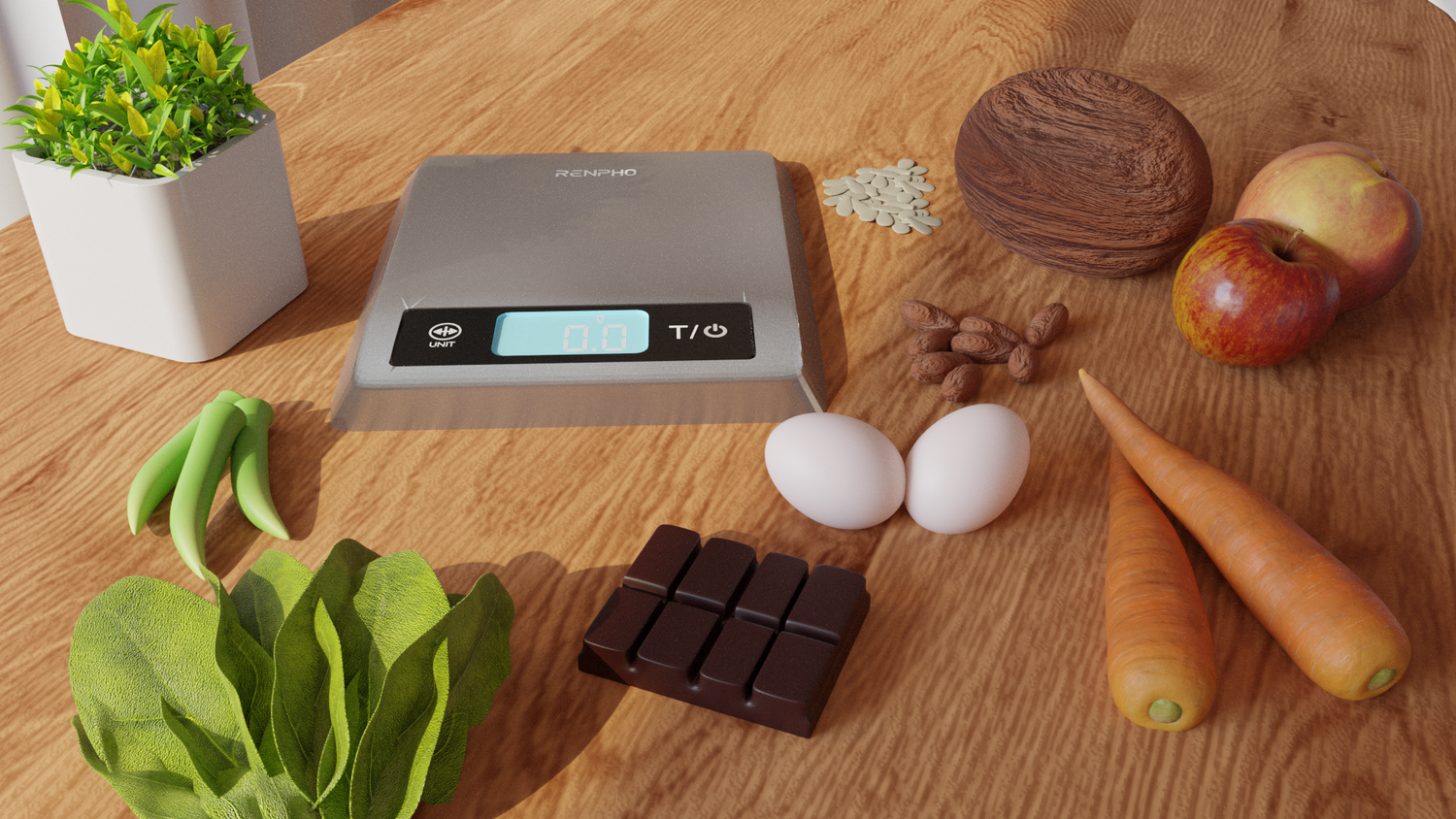Smart scales have become increasingly prevalent in households, offering more than just weight measurements. These advanced devices claim to provide additional health insights, such as body composition, muscle mass, and even hydration levels. How do they do it?
By utilizing bioelectrical impedance analysis (BIA), smart scales can estimate the amount of water in your body based on the electrical conductivity of your tissues. Intrigued? Dive deeper into the fascinating world of smart scales and find out if they can truly help you determine whether you're dehydrated or not.
Why is Hydration Important for Your Overall Health?

Proper hydration is crucial for overall health, influencing every system in the body, including its impact on body fat readings. Inadequate hydration can result in inaccurate body fat readings on scales, particularly in bioelectrical impedance analysis which measures body composition. Water conductivity plays a key role in this analysis, and when the body is dehydrated, the electrical currents used in the analysis may not flow as efficiently, leading to inconsistent and inaccurate results.
Therefore, proper hydration is a must as it offers numerous health benefits, including improved digestion, temperature regulation, nutrient transportation, and joint lubrication. When the body is adequately hydrated, digestion and nutrient absorption are optimized, leading to better overall health and well-being. Additionally, staying hydrated helps regulate body temperature and supports the lubrication of joints, aiding in physical performance and reducing the risk of injury.
What Are Smart Scales?
Smart scales are innovative devices that allow users to track and monitor their health and fitness metrics with ease. These high-tech scales are equipped with the latest technology to measure not only weight, but also body fat percentage, muscle mass, BMI, and more. For example, the RENPHO Elis 1 Smart Body Scale offers detailed insights on up to 13 essential body measurements.
By syncing data to a smartphone app, users can easily keep an eye on their progress and make informed decisions about their health and wellness goals. With their ability to provide comprehensive insights and personalized feedback, smart scales are a popular choice for individuals looking to take a more proactive approach to managing their overall well-being.
How Do Smart Scales Work?
Smart scales work using a process called bioelectrical impedance analysis (BIA). This involves sending a harmless electrical current through the body and measuring the resistance encountered. Since muscle and fat have different electrical conductivities, the scales can calculate body fat percentage based on the resistance.
However, their accuracy can be influenced by various factors. As mentioned before, hydration levels can significantly affect the readings, as different levels of water in the body can alter electrical conductivity. Additionally, recent meals can cause fluctuations in body water levels, creating measurement inaccuracies.
Overall, smart scales provide a quick and convenient method for tracking body fat percentage using BIA. However, it's important to recognize the potential influence of factors such as hydration and meals on the accuracy of the readings.
How Are Smart Scales Helpful for Body Composition Analysis?
Smart scales are helpful for body composition analysis as they use advanced technology to measure body fat, lean muscle mass, and water in the body. By sending a low electrical current through the body, these devices can calculate the amount of fat, muscle, and water based on the resistance encountered. Information gathered through this method is valuable for tracking progress in health and fitness goals, as it provides a comprehensive view of body composition.
Moreover, knowing the percentage of body fat can help individuals monitor their weight loss or muscle gain, while the measurement of lean muscle mass can indicate improvements in strength and fitness. Lastly, tracking changes in water content can provide insights into hydration levels and overall health.
What Is the Role of Body Water in Hydration?
Body water plays a crucial role in hydration, as it is essential to maintain the balance of body fluids, regulate body temperature, aid digestion, transport nutrients, and support overall health. Understanding the role of body water in hydration is key to ensuring that the body is properly replenished and supported for optimal performance and well-being.
Why Is Body Water Significant in Determining Hydration Levels?
Body water is significant in determining hydration levels because it directly impacts the accuracy of various methods used to measure hydration. When the body is dehydrated, there is less water in the tissues, which can make measurements of body fat on scales inaccurate.
Knowing the body water percentage is important for accurately assessing hydration levels as it is vital for overall health and proper bodily functions. A higher body water percentage signifies better hydration levels, while a lower percentage suggests potential dehydration.
Are Smart Scales Accurate in Determining Hydration Levels?
Smart scales use bioelectrical impedance analysis to estimate hydration levels by sending a small electrical current through the body. The accuracy of smart scales in determining hydration levels can be impacted by various factors, including the level of hydration in the body. BIA relies on the water content in the body to estimate hydration levels, so if the body's water content is not within normal ranges, the readings may be less accurate.
Hydration levels can significantly affect the readings on smart scales, as dehydration can lead to an overestimation of body fat and an underestimation of muscle mass. This can result in inaccurate health assessments and fitness tracking. It's important to consider that while smart scales can provide useful data, their measurements of hydration levels have limitations and may not always be entirely accurate.
When interpreting the results in terms of hydration levels, it's essential to consider the impact of dehydration on body fat readings. It's also important to note that factors such as exercise, dietary habits, and individual differences in body composition can influence the accuracy of smart scale readings.
Are There Any Factors That May Affect Hydration Readings in Smart Scales?
Several factors can affect the accuracy of hydration readings in smart scales. One important factor is body composition. Smart scales use bioelectrical impedance analysis (BIA) to estimate hydration levels, but factors like muscle mass and body fat percentage can influence the conductivity of tissues, potentially leading to variations in readings. Environmental factors, such as temperature and humidity, can also impact results by affecting tissue conductivity. Additionally, your hydration status itself can affect the reliability of readings. If you are already dehydrated or overhydrated, the readings may not accurately reflect your true hydration levels. Electrical interference and user error, such as inconsistent foot placement or not following instructions properly, can also introduce inaccuracies.
It's important to interpret hydration readings from smart scales with caution and consider them as just one piece of information. If you have concerns about hydration, it's always best to consult with a healthcare professional.
What Do Your Body Water Percentage Readings Mean?
Body water percentage readings provide important information about the amount of water present in your body. A healthy percentage typically falls within the range of 50-65%. Interpreting these readings is crucial for understanding your hydration levels and overall health.
Essentially, your body water percentage has a direct correlation to your hydration levels, indicating your overall hydration status. Proper hydration is essential for maintaining bodily functions, including temperature regulation, digestion, and circulation.
Low body water percentage readings may indicate dehydration, which can lead to symptoms like dry mouth, fatigue, and dizziness. To address this, it is important to increase fluid intake through water and hydrating foods. On the other hand, high body water percentage readings may signal overhydration, which can cause water retention and electrolyte imbalances. This can be addressed by reducing fluid intake and monitoring sodium levels in the diet.
Takeaway

Smart scales have become popular for their ability to provide comprehensive health insights beyond weight measurements. By utilizing bioelectrical impedance analysis (BIA), they estimate body composition, including body fat percentage, muscle mass, and hydration levels.
Proper hydration is important for accurate body fat readings, as low hydration levels can lead to overestimation of body fat. Smart scales work by sending a harmless electrical current through the body and measuring the resistance encountered. However, factors like hydration levels and recent meals can affect the accuracy of the readings. Therefore, it's important to interpret hydration readings with caution and consider them as just one piece of information. Proper hydration is crucial for overall health, supporting digestion, temperature regulation, nutrient transportation, and joint lubrication.
Renpho Health Tips
-

Don’t Let the Cold Fool You: Staying Hydrated in the Winter
December 20, 2023
Read more >
-

10 Fiber Foods You Can Add to Your Weight Loss Diet
December 21, 2023
Read more >
-

The Amazing Benefits of Sauna and Steam for Your Body and Mind
December 10, 2023
Read more >
-

Discovering the Happiness-Boosting Powers of Hot Chocolate
November 30, 2023
Read more >
-

Achieving Dietary Balance: Mastering the Three Essential Macronutrients
November 29, 2023
Read more >



































